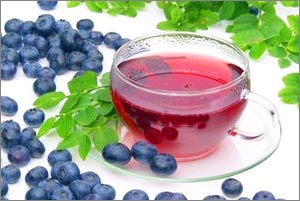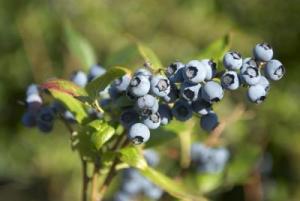 Overview
Overview
Bilberry fruit is both a food and a potential remedy for various health disorders. Bilberries contain chemicals called anthocyanosides with antioxidant properties, according to the University of Maryland Medical Center (UMMC), as well as the antioxidant vitamin C. Antioxidants prevent, decrease and reverse damage to cells from free radicals that develop from oxidative stress. The UMMC notes that research is lacking for effects of bilberry on humans, and most studies focus on similar antioxidants or the effects of bilberry on animals or in the laboratory. People can obtain the potential benefits of bilberries by eating them fresh or dried, drinking bilberry tea, or taking bilberry extract from leaves or berries standardized to 25 percent anthocyanidin content.
Chronic Venous Insufficiency
European health practitioners use bilberry extract to treat chronic venous insufficiency, according to the UMMC, using a standardized extract called Vaccinium myrtillius anthocyanoside (VMA). In chronic venous insufficiency, valves in leg veins that carry blood to the heart become damaged, resulting in leg swelling, pain, itching, varicose veins and skin ulcers. The anthocyanoside content of bilberry appears to strengthen blood vessels and decrease these symptoms.
 Blood Clot Prevention
Blood Clot Prevention
Anthocyanosides may prevent the oxidation of low-density lipoprotein (LDL), the so-called bad cholesterol, which is a primary risk factor for plaque build-up in blood vessels (atherosclerosis) that can lead to heart attack or stroke. These chemicals also prevent blood platelets from clumping together, which decreases the risk of blood clot formation, as explained by the UMMC.
Diabetes and Retinopathy
Bilberry leaves have a traditional use for regulating blood glucose in people with diabetes. Research with both humans and animals supports this use, according to the U.S. National Institutes of Health (NIH). Bilberry also may be useful in the treatment of retinopathy, damage that can occur to the retina of the eye due to chronic high blood sugar or high blood pressure.
Gastrointestinal Benefits
Traditional European medicine includes bilberry as a treatment for diarrhea, as noted by the UMMC. Bilberry fruit contains tannins that reduce intestinal inflammation, and astringent properties that constrict and tighten tissues. Laboratory and animal studies also support the use of bilberry extract for healing stomach ulcers, according to the NIH.
Source: http://www.livestrong.com/article/115740-benefits-bilberry/
Learn more about bilberry tea http://www.bilberrytea.net/
http://www.bilberrytea.net/health-benefits/ bilberry tea benefits
http://www.bilberrytea.net/side-effects/ bilberry tea side effects
http://www.bilberrytea.net/weight-loss/ bilberry tea weight loss
http://www.scoop.it/t/tealifestyle/p/4054969692/2015/11/14/dandelion-root-tea
![]()
No comments:
Post a Comment